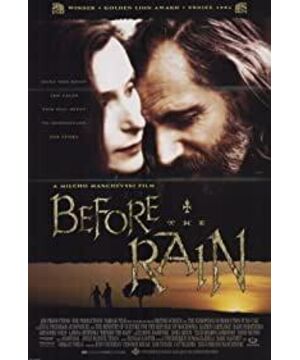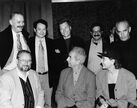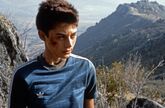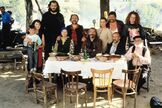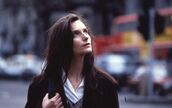Manchevski . Manchevski’s initial idea for this film originated from a trip he returned to his hometown of Macedonia from New York to visit his family. It was 1991, and it was the first six years after he settled in New York. At that time, the former Yugoslav Republic had not yet disintegrated, and Macedonia was still among them, but the situation was on the verge of outbreak, and the air was full of pressure before the advent of great changes, Manchevski described it. “It’s like the pressure that people can’t breathe before the rainstorm comes”-and this is the origin of the film’s name, “the rainstorm is coming”. People feel anxious and small in the face of the imminent and inescapable upheaval, but more or less Less, with expectations.
"… a sense of impending doom. I am not sure doom is the right word, because it was more a feeling of impending something – a change, an explosion, something bad, but also perhaps something promising and optimistic ...It felt sort of like the pressure you feel on the inside of your mouth before it rains.
I decided the best way to describe this feeling was by calling it before-the-rain feeling, like when you wait for the skies to open and bring down something hard, but also – potentially – something cleansing. Like rain. "The
film really started shooting At that time, the former Yugoslavia had disintegrated and Macedonia declared its independence - the heavy rains have fallen. It is inevitable that guns and fires between the domestic borders, but no large-scale war broke out, and the film was born with difficulty in this complex situation. Manchevski's success in the film is complicated. On the one hand, he felt that his hard work was rewarded. On the one hand, he was afraid to comment on the interpretation of the film as a documentary. In the article, he repeatedly emphasized that his shooting purpose from beginning to end has nothing to do with the record. For this reason, he also deliberately made the film scene poetic and fairy tale. Different from documentaries. "The country was made to look like a fairy-tale land in the way it was photographed... Special effects were utilized (moon, stars). The music was quite dramatic. We even created new geography of the country... we wanted to create even more heightened reality composed solely of wonderful landscapes, a place obviously unreal, closer to a mythical land than to current-day Macedonia."
In this narrative, Manchevski talked about whether "documentary film" (documentary film) can really be "objective" view, and this is my favorite discussion in the full text. He said that "documentary film" is never possible Achieve complete objectivity, because: when to start shooting, when to stop, how to frame the scene, how to post-edit, sound effects - all depends on the director's decision, and how a thing that depends on the subjective intention of an individual or a team can be called Objective? So no matter how hard the director desperately wants to be fair, what he produces is only his subjective understanding of the subject matter. Information that has been recombined and interpreted by the human brain will never be truly objective. In other words, perhaps a "documentary" is fundamental Does not exist.
"Many people believe that there is no such thing as a documentary film. The moment you decide when to press the button and where to point the camera you are making a choice that affects the'documentary' aspect of your creation. Not to mention editing or voice-over, that further enhance the filmmaker's manipulation of the story. Every film is a work of fiction, no matter how hard its makers try to be objective. That's the nature of the beast. What is'being objective' , after all?" The
moving part of Manchevski's text is that it has a strong sense of picture, like painting a thick and colorful oil painting, such as his description of the general tone of the three parts of the film:
"In the first third, the country was made to look like a fairy-tale land in the way it was photographed. Blues and visuals suggestive of Byzantine art dominated the first third; the middle section was glassy, gray and milky; the third part was brown, warm, even hot, pagan: sticks, mud and grass. "
Finally, although I did not hesitate to give it five stars, I don't recommend this film unless you have a lot of enthusiasm. Those with average interests should find the film slow and confusing Right - for example, the first time I watched it. The
movie is a bit long, so watch the movie carefully.
Reference:
Rainmaking and Personal Truth, Milcho Manchevski, 2000. Rethinking History, The Journal of Theory and Practic, volume 4, issue 2, page 129 -134.
View more about Before the Rain reviews


